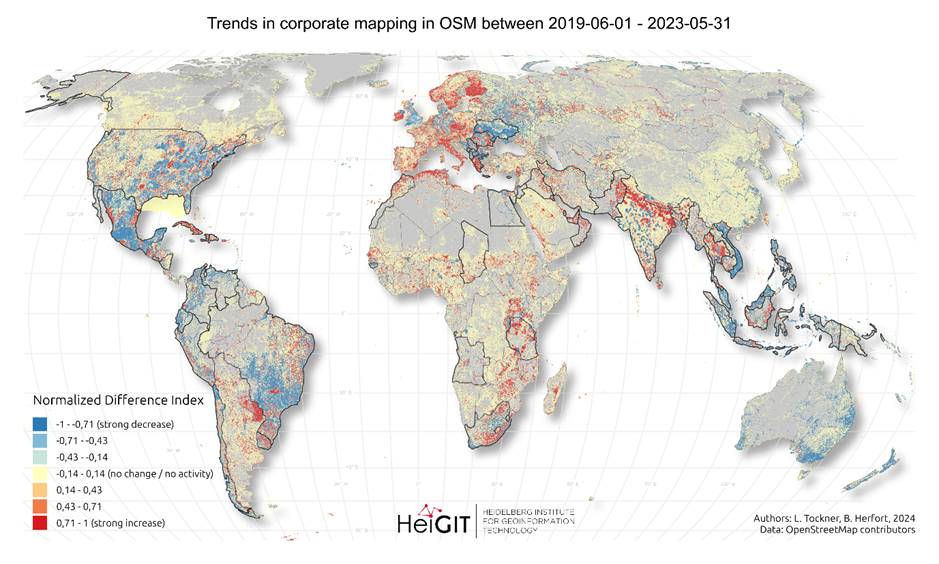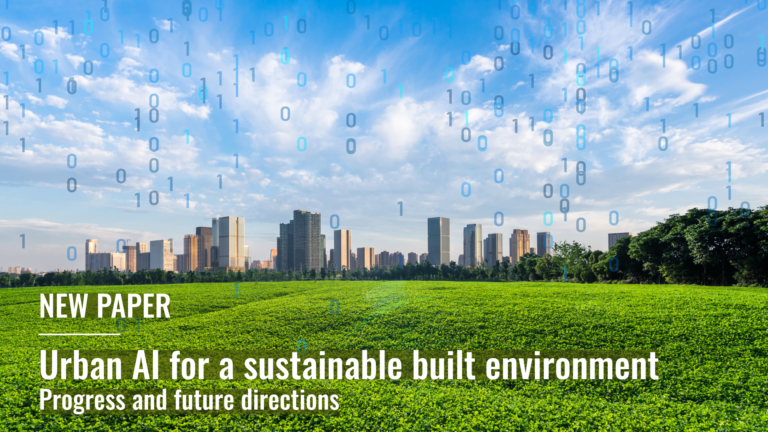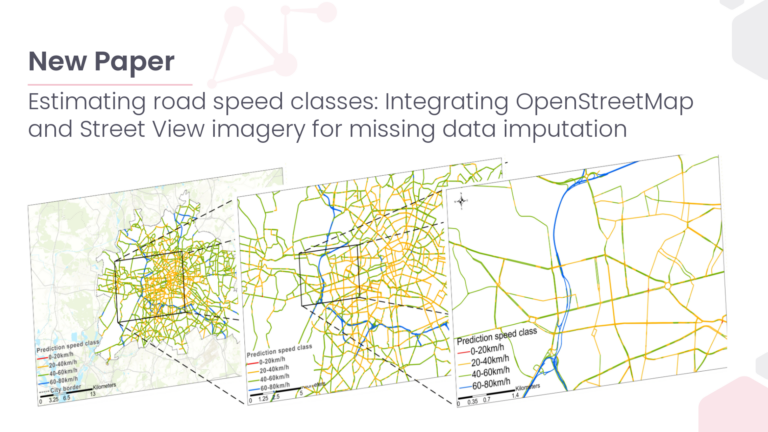Since 2016, corporate involvement in OpenStreetMap (OSM) has grown significantly, with major contributors such as Apple, Microsoft, Meta, and Amazon making substantial edits to the map on a global scale. These efforts have often focused on filling gaps in high- and medium-income countries, contributing to the overall growth of OSM data. However, this increasing corporate presence has sparked debates within the OSM community, particularly among traditional mappers in Western countries. Criticism has frequently centered on the role of Meta/Facebook, highlighting concerns about corporate motivations and their broader impact. Beyond direct edits, companies also engage with the OSM ecosystem by sponsoring conferences, donating resources, and providing infrastructure support.
This study explores the dual impacts of corporate mapping and highlights the need for transparency in OSM. At the global scale, analysis from 2016 to 2024 reveals that 36 countries account for 88% of all corporate mapping activity. Interestingly, despite an increase in the number of active corporate contributors, the total volume of corporate edits has been declining since 2021. Locally, the study examines mapping activities in the United Arab Emirates, Colombia, Vietnam, and Mexico, finding no consistent evidence that corporate contributions deter non-corporate mappers. However, the declining trend in corporate edits raises questions about possible shifts in corporate strategies and their implications for spatial data quality and community sustainability.
Future research needs to shed light on this shift by investigating the accompanying effects on spatial data quality and OSM community sustainability. This study advocates for a more open and cooperative approach to ensure the long-term sustainability of OSM. The ohsome contributions dataset used in this analysis offers a unique resource for exploring the ‘what’ and ‘where’ of corporate mapping at regional levels. Combining this quantitative perspective with qualitative methods could illuminate the motivations and strategies behind corporate mapping efforts, shedding light on why specific regions, cities, or neighborhoods are prioritized.
For further insights, the study’s workflow and figures are available in a GitHub repository.
Full paper: Tockner, L., Herfort, B., Lautenbach, S., & Zipf, A. (2025). Corporate mapping in OpenStreetMap – shifting trends in global evolution and small-scale effects. Geo-Spatial Information Science, 1–20. https://doi.org/10.1080/10095020.2025.2493076
Benjamin Herfort`s talk at the State of the Map: 2024: Shifting trends in global evolution of corporate mapping in OSM





